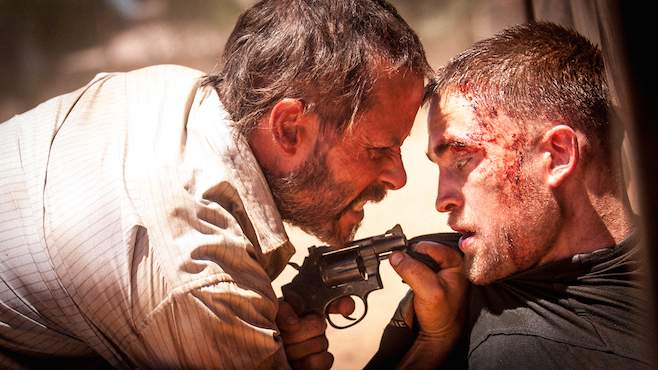The Rover
Animal Kingdom writer-director David Michod has a bleak future vision for Australia.
Overview
A dark Shakespearean crime drama, 2010's Animal Kingdom was one of the most resounding Australian films in years. Not only did it launch the international careers of Ben Mendelsohn and Jacki Weaver, it also heralded the arrival of writer-director David Michôd, a filmmaker whose tightly controlled aesthetic suggested even greater things to come. His sophomore effort is The Rover, a barebones narrative that mirrors his debut in both its technical precision and its nihilistic tone. What's missing, however, is a similarly compelling set of characters. Without them, a pervasive sense of bleakness soon swallows the movie whole.
Based on an idea by Michôd and actor Joel Edgerton, the film takes place across desolate stretches of the outback, a decade after Western society has collapsed. While drinking alone in a gloomy roadside bar, a heavily bearded Guy Pearce sees three gun-toting criminals steal his car. The rest of the movie follows his efforts to get the car back.
Michôd would have known from the very first word that comparisons to Mad Max were inevitable. Despite this, The Rover is not an action flick. Methodically paced and dripping with menace, the film actually has more in common with something like Ted Kotcheff's Wake in Fright, which likewise capitalised on the intensity of its outback setting. Meticulous technique — including razor-sharp editing, oppressive sound design, a brooding score and dispassionate cinematography — sets audience members on edge. The violence, when it comes, is sudden, shocking and unglamorous.
Yet beneath the craft, the film feels decidedly hollow. Pearce is a great actor, but there's only so much variance he can bring to such a single-minded protagonist. Robert Pattinson, meanwhile, gives a woefully misjudged performance as Pearce's unlikely travelling companion, the slow-witted brother of one of the thieves Pearce is trying to track down. His constant twitching and incomprehensible Southern drawl seem like the efforts of an actor trying desperately to play against type. Good on him for trying, but the fact is it just doesn't work.
So the film descends into meaninglessness and futility. Michôd's future world is bereft of human compassion — grandmothers pimp their grandkids, people hunt dogs for food, and our protagonist commits murder without a moment's hesitation. By the time the movie ends, you're left broken and exhausted. And while it takes a lot of skill to achieve that, it never really feels like it was worth it.





